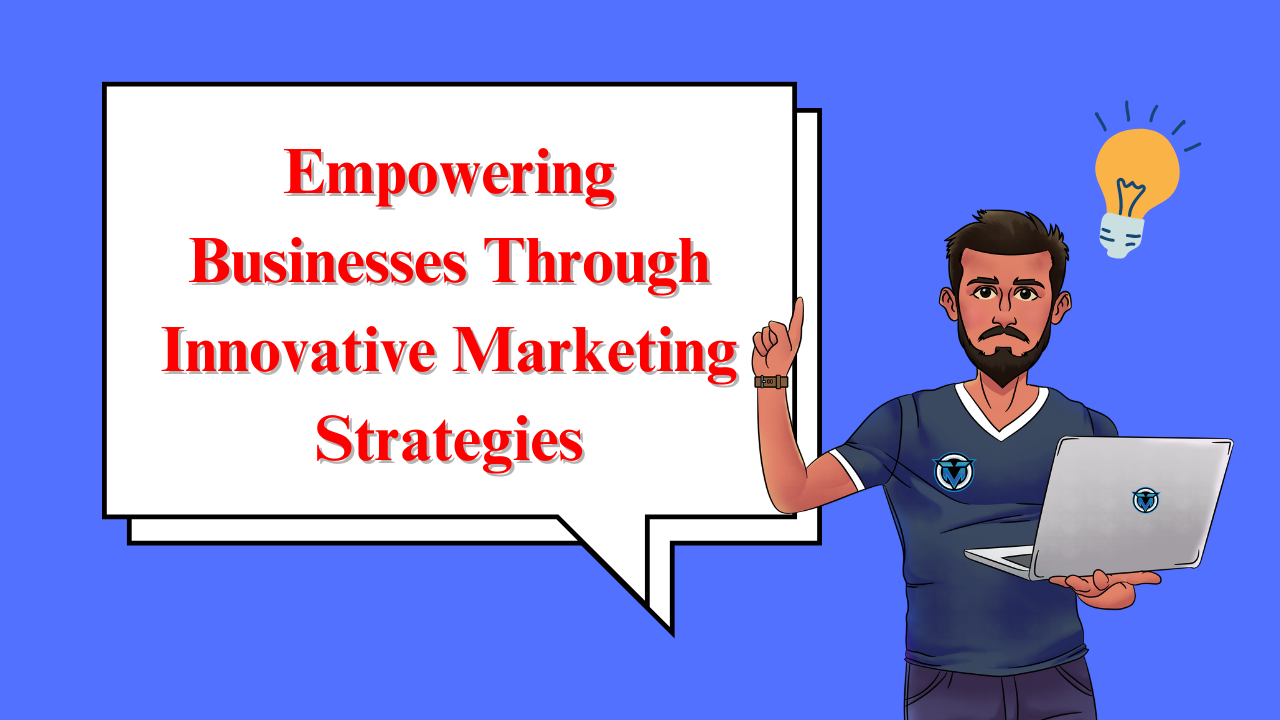Empowering Businesses Through Innovative Marketing Strategies
In today’s rapidly evolving marketplace, businesses must continuously innovate to stay ahead of the competition. One of the most effective ways to achieve this is through innovative marketing strategies. These strategies not only help businesses to reach their target audience more effectively but also to build stronger relationships with customers, differentiate themselves from competitors, and drive sustainable growth.



Understanding the Importance of Innovation in Marketing
Innovation in marketing goes beyond simply using the latest technologies or trends. It involves a deep understanding of customer needs and preferences, the ability to think creatively and strategically, and a commitment to continually improving and adapting marketing efforts. Innovative marketing strategies are crucial for businesses for several reasons:
- Customer Engagement: Innovative strategies help businesses to engage with their customers in more meaningful and personalized ways, leading to stronger relationships and increased loyalty.
- Competitive Advantage: By adopting unique and creative marketing approaches, businesses can differentiate themselves from competitors and attract more customers.
- Market Adaptability: Innovative marketing allows businesses to quickly adapt to changes in the market, such as new consumer behaviors, emerging trends, or economic shifts.
- Sustainable Growth: Businesses that consistently innovate in their marketing strategies are more likely to achieve long-term success and growth.
Key Components of Innovative Marketing Strategies
- Data-Driven Marketing: Leveraging data and analytics to make informed decisions is at the heart of innovative marketing. By analyzing customer data, businesses can gain valuable insights into their target audience’s preferences, behaviors, and needs. This information can then be used to tailor marketing campaigns, optimize customer experiences, and drive better results.
- Personalization and Customization: Personalization is a powerful tool for engaging customers and building loyalty. Innovative marketing strategies often involve creating personalized experiences for customers based on their unique preferences and behaviors. This can include personalized emails, product recommendations, and targeted advertising.
- Content Marketing: High-quality, valuable content is essential for attracting and retaining customers. Innovative content marketing strategies involve creating and distributing content that resonates with the target audience and provides real value. This can include blog posts, videos, infographics, and more.
- Social Media Marketing: Social media platforms offer businesses a unique opportunity to connect with customers and build brand awareness. Innovative social media marketing strategies involve creating engaging and interactive content, leveraging influencers, and using social media analytics to optimize campaigns.
- Experiential Marketing: Experiential marketing focuses on creating memorable experiences for customers that connect them with the brand on an emotional level. This can include events, pop-up shops, interactive campaigns, and more.
- Digital Transformation: Embracing digital technologies is crucial for staying competitive in today’s market. Innovative marketing strategies often involve the use of digital tools and platforms to enhance customer experiences, streamline marketing processes, and drive better results.
Examples of Innovative Marketing Strategies
- Coca-Cola’s “Share a Coke” Campaign: This campaign involved replacing the Coca-Cola logo on bottles with popular names, encouraging customers to find and share a Coke with their friends and family. This personalized approach generated significant buzz and increased sales.
- Nike’s “Just Do It” Campaign: Nike’s iconic campaign focuses on empowering and inspiring customers to achieve their goals. The campaign’s innovative approach to storytelling and brand messaging has helped to build a strong emotional connection with customers.
- Airbnb’s User-Generated Content: Airbnb leverages user-generated content to promote its brand. By encouraging customers to share their travel experiences and stories, Airbnb creates authentic and engaging content that resonates with potential customers.
Implementing Innovative Marketing Strategies
To successfully implement innovative marketing strategies, businesses should follow these steps:
- Set Clear Goals: Define the objectives of the marketing strategy and what the business hopes to achieve.
- Understand the Target Audience: Conduct thorough research to understand the target audience’s needs, preferences, and behaviors.
- Develop a Creative Strategy: Brainstorm and develop creative ideas that align with the business’s goals and resonate with the target audience.
- Leverage Technology and Tools: Utilize digital tools and technologies to enhance the effectiveness of the marketing strategy.
- Measure and Optimize: Continuously monitor the performance of the marketing strategy and make adjustments as needed to optimize results.


0 responses to “Innovative Marketing Strategies”